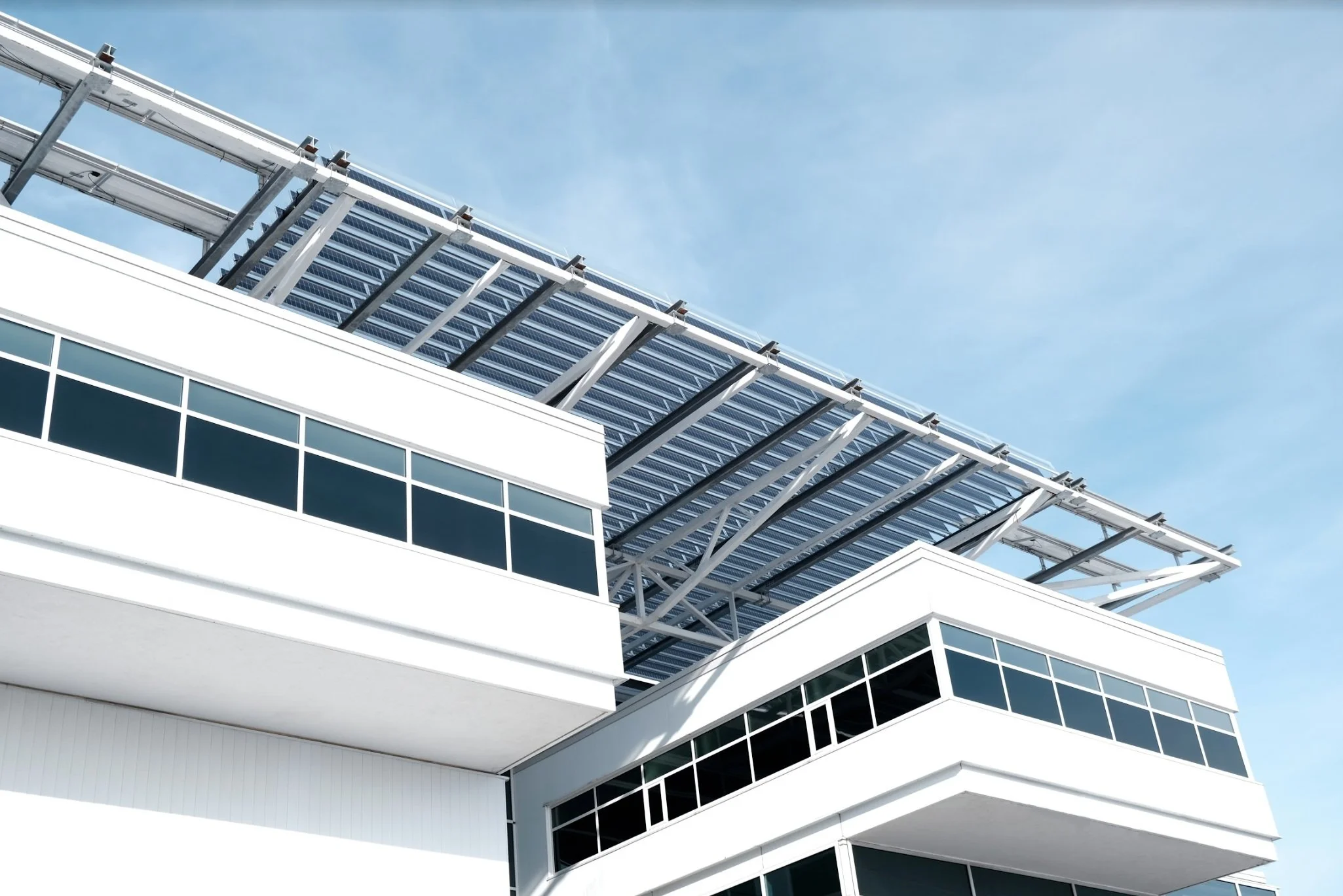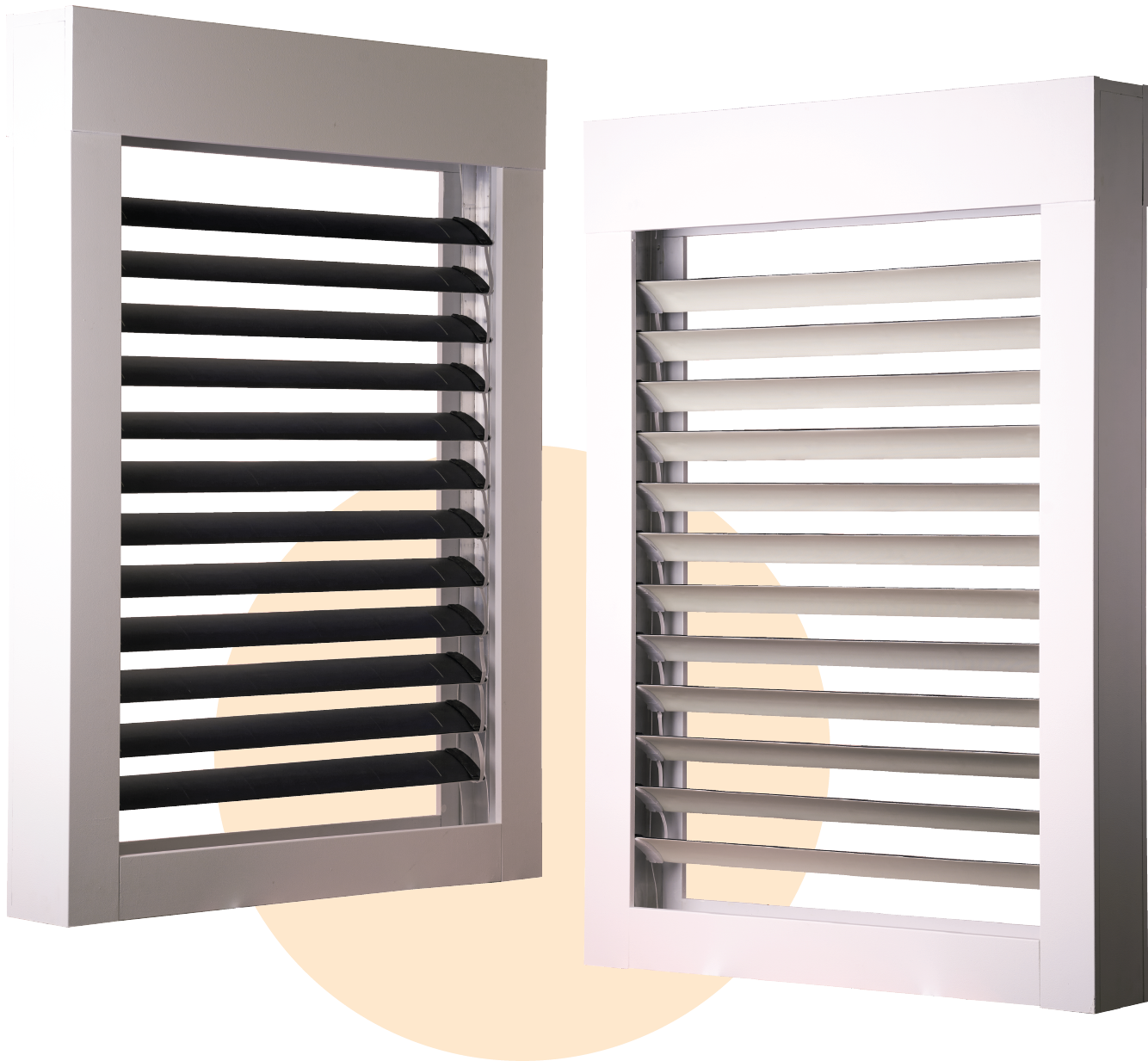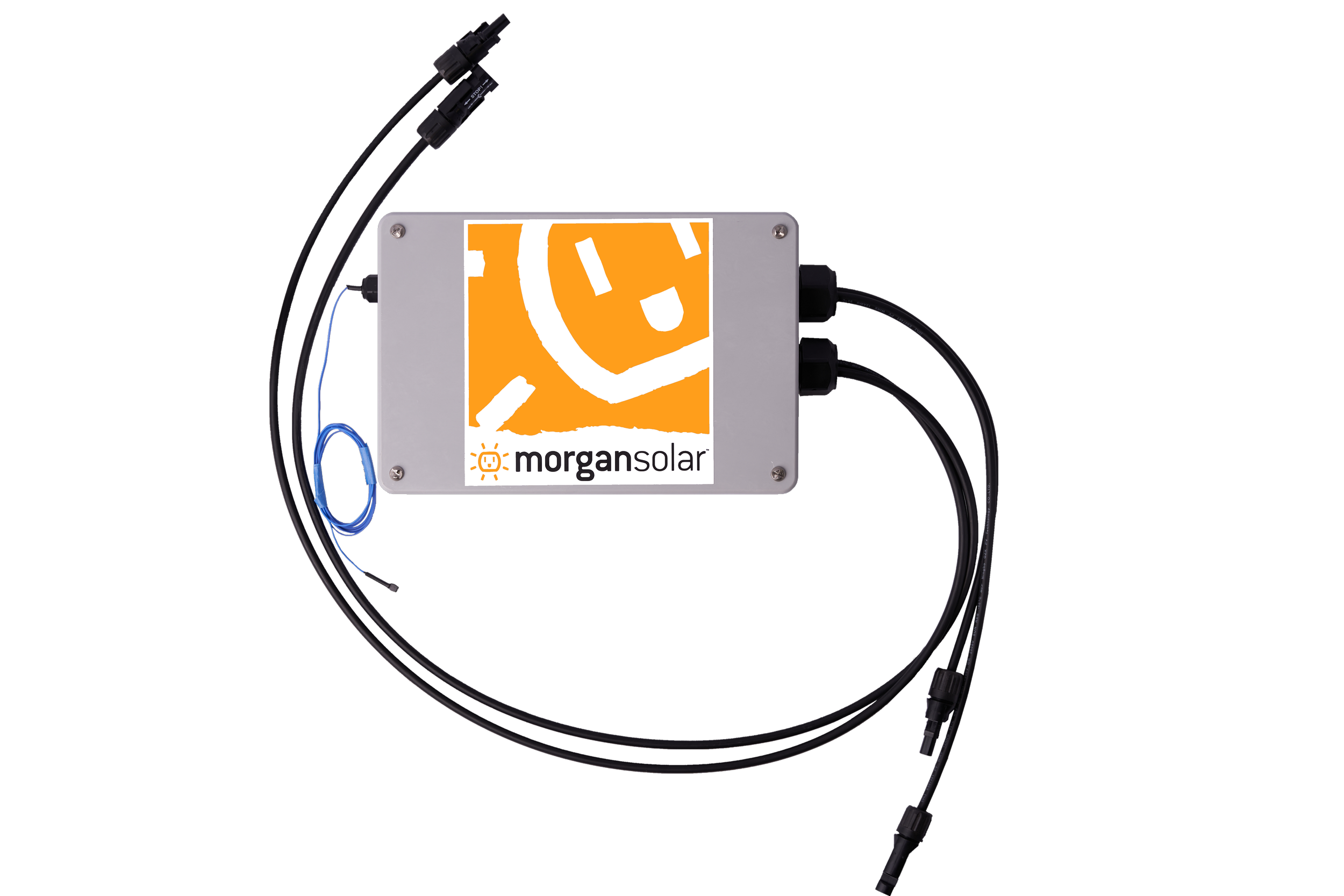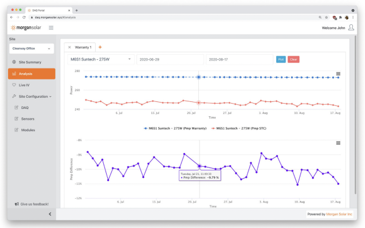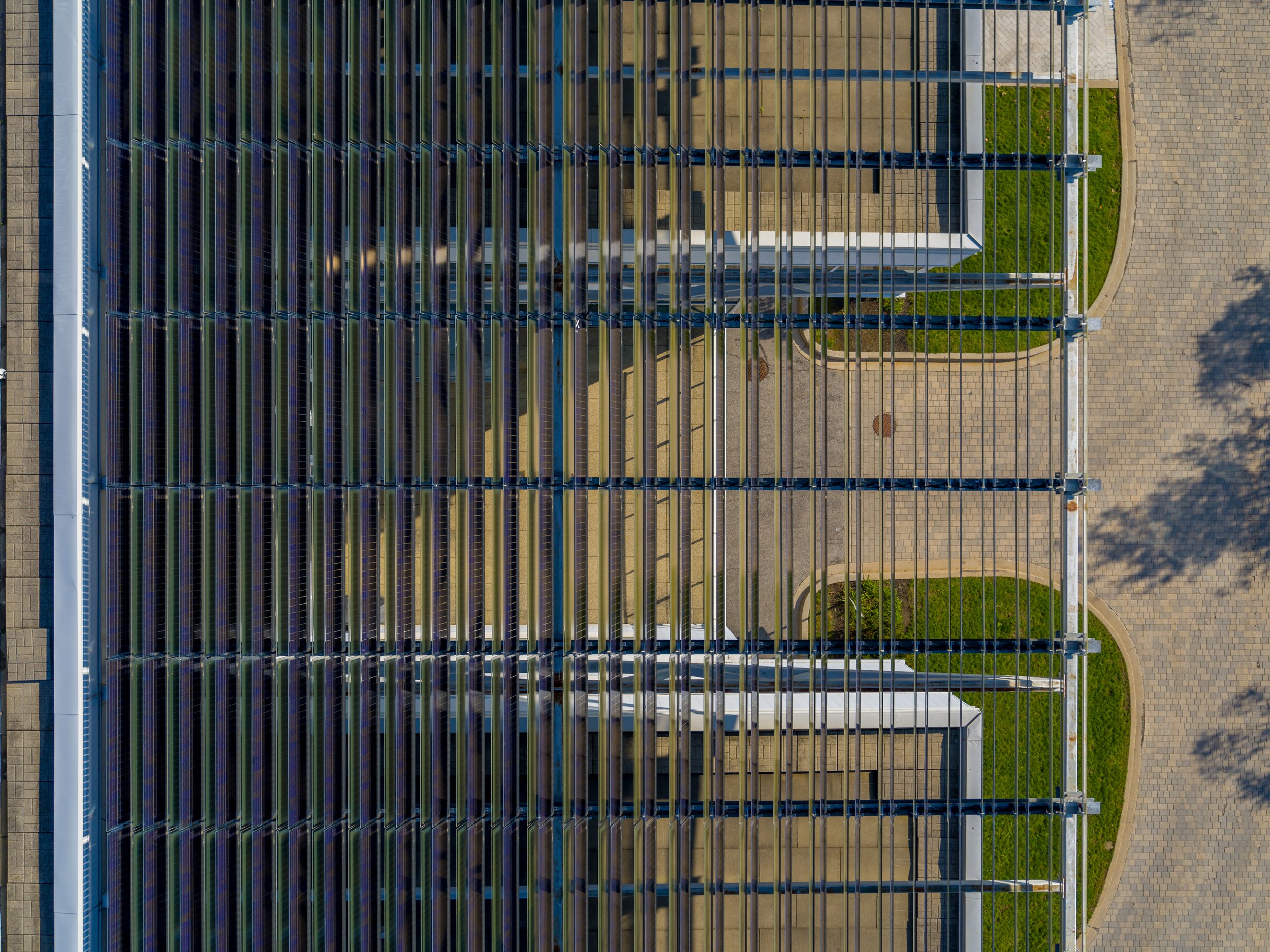
SPOTlight Energy Blinds and Energy Louvres
New Alternatives to Rooftop Solar
Create daylit, energy optimized spaces that people love
The SPOTlight product platform includes SPOTlight Energy Louvres and SPOTlight Energy Blinds; PV enabled shade structures that generate power, manage light and heat, and reduce building energy consumption. SPOTlight transforms spaces to improve comfort for building occupants and deliver energy savings for building owners and managers.
SPOTlight Energy Louvres
Can be applied as BIPV brise soleils on a façade or as either rooftop or standalone pergolas
PV Louvres generate up to 25% more energy (kWh/m2 ) than other conventional PV arrays
Translucent Optic Slats maximize diffuse light, block glare, and maintain a uniquely open look
SPOTlight arrays block heat gain and increase building efficiency, generating energy savings from reduced cooling load
SPOTlight solar pergola installed at the OAA
SPOTlight Energy Blinds
SPOTlight Energy Blinds Prototype
IoT enabled automated shades that generate power at the window from the incident sunlight
Sun-tracking reduces HVAC load by controlling the light + heat entering the space
Increase diffuse light and block glare, reducing the need for artificial indoor light
React and learn from user behaviour to create functional + enjoyable spaces for building occupants
Clean power, generated on-site at your building
Energy savings from lower heating + cooling loads
Adaptive spaces that manage sunlight at the façade
Improve thermal comfort for occupants
Year-round daylighting with minimal glare
Lower building carbon emissions and meet ESG goals
SPOTlight technology is designed down to the photon for high performance by our software, SunStudio. SunStudio lets us model a variety of PV and building materials to solve for heat, light and energy on our clients’ buildings, and quickly compare performance, cost & ROI to find the best possible solution.
Once SPOTlight is installed, we use our PV DeepSweep data acquisition tools to validate overall system performance. Then we use machine learning to improve our predictions.


